Asia Cup
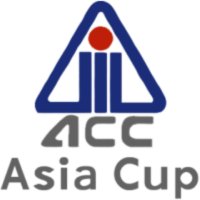
Asia Cup ODI + T20 Championship: Participants
India National Cricket Team Sri Lanka National Cricket Team Pakistan National Cricket Team Bangladesh National Cricket Team Afghanistan National Cricket TeamAsia Cup - interesting tournament
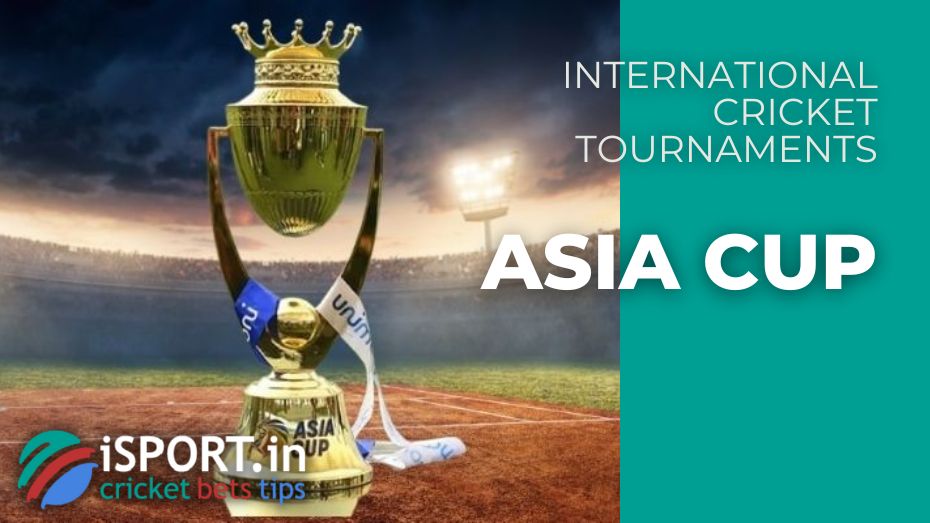
Asia Cup is one of the most interesting tournaments in the world of cricket among the continental ones. The fact is that there are several strong teams in Asia that play well at the world level. Since 2016, the tournament has been held in two formats — One Day International and Twenty20 International. Conditions vary depending on what format is used at the World Cup.
Asia Cup: general information
In 1983, the Asian Cricket Council was founded. The debut Asia Cup was held in 1984. Initially, four countries became members of the Asian Cricket Council: India, Sri Lanka, Bangladesh and Pakistan. At the same time, the Bangladesh national team did not participate in the first tournament held in Dubai (UAE). The second game did not feature the Indian team, which had a conflict with the Sri Lanka Cricket Federation. An unpleasant situation arose after the controversial refereeing in the match between India and Sri Lanka. The Indians felt that important decisions were not made in their favor. Unfortunately, the Asia Cup boycotts did not end there. The national team of Pakistan, which had strained political relations with India, did not play at the tournament in 1990/91. In 1993, the competitions were completely canceled due to aggravations in the politics of the two countries.
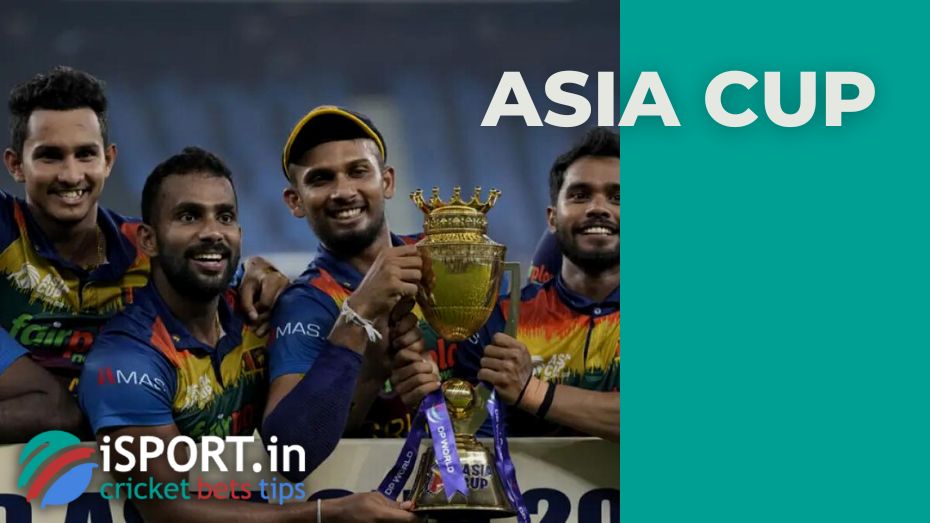
Asia Cup: format
From three to six teams participated in the tournament at different times:
- The minimum number of participants was in 1984, 1986, 1990/91.
- Four teams each played at the Asia Cup in 1988, 1995, 1997, 2000 and 2010.
- There were five participants in 2014.
- In 2004, 2008, 2016 and 2018, six teams competed at the Asia Cup.
- In fact, only two formats were used in the championship:
- In most tournaments, the national teams played each other once in the group stage. The top two teams advanced to the finals and revealed the winner of the Asia Cup. In the opening game of the competition, the champion was determined based on the group stage results.
- In 2004, 2010 and 2018, the teams were divided into two groups at the group stage. Then the top four remained in the fight for medals. They formed the Super Four and played with each other. The top two advanced to the final.
Since 2016, qualification has been held at the Asia Cup. Four teams took part in the first draw: UAE, Afghanistan, Oman and Hong Kong. As a result, only the UAE national team played in the final part of the tournament. In 2018, six teams participated in the selection: UAE, Hong Kong, Oman, Nepal, Malaysia and Singapore. This time, two teams made it to the final part; they turned out to be the UAE and Hong Kong. It was planned that the next championship would be held in 2020. In February 2020, geographical affiliation played matches in two associations: Eastern Region Group and Western Region Group. As a result, a group of four teams was formed (Hong Kong, Kuwait, Singapore and the UAE), whose participants should compete for two tickets to the next Asia Cup. The tournament dates are still unknown, so the meetings of the qualifying stage have been temporarily postponed.
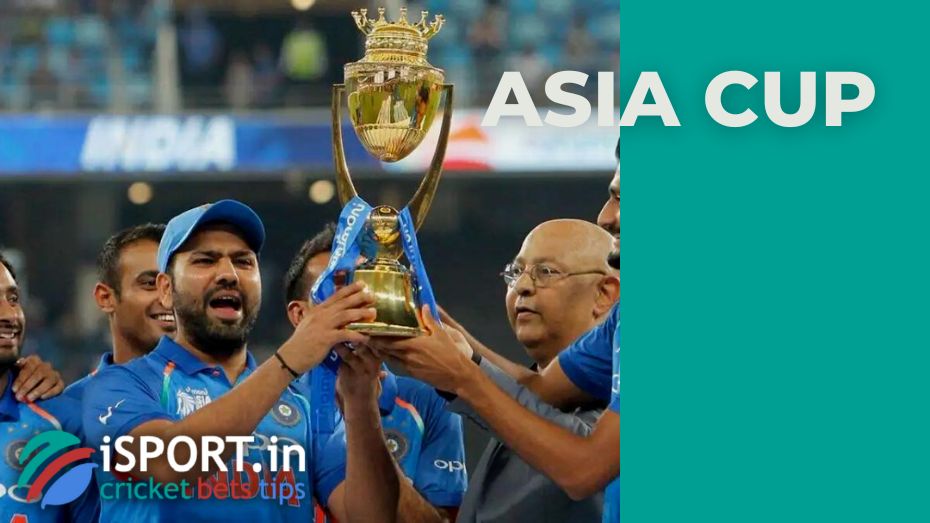
Asia Cup: history
The most successful Asia Cup team is India. This national team has seven trophies to its credit:
- The Indians won for the first time in 1984. Then they beat Sri Lanka in the fight and defeated Pakistan.
- The second title was won in the 1988 season. In the group stage, India lost to Sri Lanka but defeated Pakistan and Bangladesh. In the final, the representatives of India and Sri Lanka gave out a hard match, which ended with a difference of six wickets in favor of the Indians.
- In 1990/91, India narrowly beat Bangladesh in the group (with an advantage of 9 wickets). At the same time, the Sri Lankan team lost almost without a chance. The teams met for the second time in the final. Like three years ago, the decisive match turned out to be a battle and again ended in favor of the cricketers from India.
- In 1995, Indian players were finally able to beat Sri Lanka in the group. There was also a victory over Bangladesh. But the Indians lost to Pakistan without a chance. Once again, the final pair were the cricketers of India and Sri Lanka, who beat Pakistan thanks to more runs. The Indians won again with a small difference of 8 wickets.
- After the success in 1995, the Indian national team did not win the Asia Cup for 15 years. A series of relative failures was interrupted in 2010 when the tournament was held in the homeland of the main rival — in Sri Lanka. The tournament hosts in the group did not concede a single match, including beating the Indians. At the same time, the Indian national team was better than Bangladesh and Pakistan in hard-fought matches. The representatives of Sri Lanka were considered the favorite of the final match, but the Indians managed to surprise fans and specialists and win. They played amazingly and didn’t give the hosts any chances. Dinesh Karthik and Shahid Afridi were especially good as part of the winners. Karthik won 66 of 84 balls, and Afridi scored 265 runs in the three matches he played at the tournament.
- In 2016, the Asia Cup was held for the first time in the Twenty20 International format. The Indian national team has opened the account of victories in this format of cricket. In the group stage, the future champions did not concede a single match, although they had to try to win against all teams except Bangladesh. In other matches, the representatives of Bangladesh looked much better and eventually reached the final from second place. There was a struggle in the second meeting of the national teams at this tournament. Only with a difference of 8 wickets were the Indians better.
- In 2018, the Indian national team defended the championship title. In the group stage, the team defeated Pakistan and Hong Kong. Bangladesh, Afghanistan and Pakistan were beaten in the Super Four round. In the final of the second tournament in a row, the Indians came together with the Bangladesh national team and won again with a small difference (by 3 wickets).
The second most successful Asia Cup team is Sri Lanka. This team became the champion in 1986, 1997, 2000, 2008 and 2014. It is noteworthy that the Indians were beaten three times in the finals and the Pakistanis twice. The two-time winner of the championship is the national team of Pakistan. Bangladesh has competed in the Asia Cup finals three times.
Bangladesh became the host of tournaments most often – 5 times. Sri Lanka has hosted the Asia Cup four times. India and Pakistan were the tournament hosts less often, as there are tense political relations between these countries.
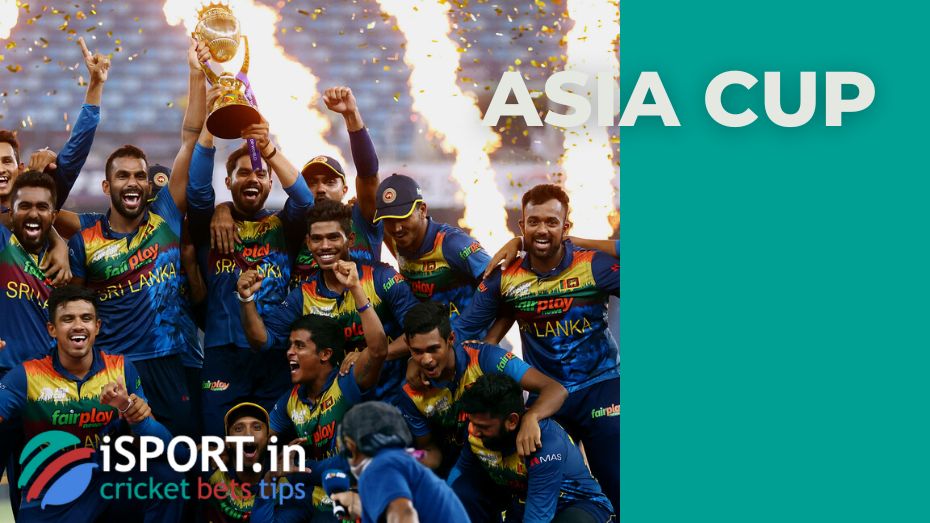
Asia Cup: next tournament
The 15th Asia Cup in history was supposed to be held in September 2020. Due to the coronavirus pandemic, the organizers decided to postpone the competition to July. However, later it became clear that it would not be possible to hold the tournament in the 2020 season.
The competition hosts were supposed to be the national team of Pakistan, although some other participants of the tournament, particularly India, opposed this option. Due to the difficult political situation on the state’s territory, Pakistan last hosted the Asia Cup in 2008. Sri Lanka could have become the competition host instead of Pakistan, but these plans did not come true. Probably, the next Asia Cup will take place only in 2023.
